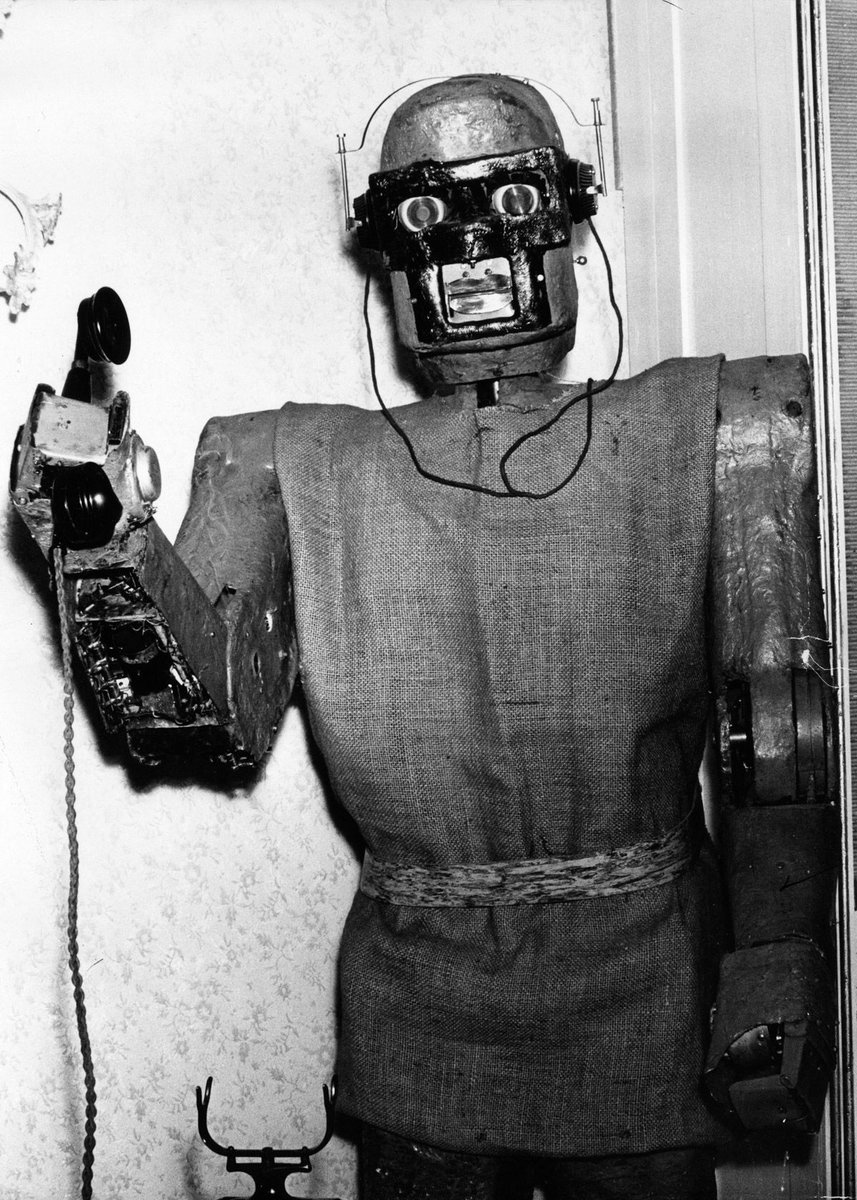
Antitrust enforcement is virtually a dead letter in America (it was killed 40 years ago by Reagan's court sorcerer Robert Bork, better known as the Nixonite criminal who couldn't get approved for a SCOTUS seat).
1/
1/

But even when we WERE enforcing antitrust, we tended to pump the brakes during economic crises: no one wants to put additional constraints on business during a downturn.
2/
2/
That's wrong. Antitrust enforcement isn't an economic drag, it's an economic STIMULUS.
promarket.org/2020/10/19/ant…
Monopolies extract higher profits by crushing workers and small competitors, but workers and small businesses spend their earnings back into the economy.
3/
promarket.org/2020/10/19/ant…
Monopolies extract higher profits by crushing workers and small competitors, but workers and small businesses spend their earnings back into the economy.
3/
Monopolist's shareholders, on the other hand, tend to bank their winnings, or spend it on items with small multipliers like superyachts and fractional shares in rare artworks shuttered in climate-controlled containers in Swiss freeports.
4/
4/
By contrast, workers buy groceries, pay contractors to fix their roofs, or buy braces for their kids. That money recirculates in the communities in which it is earned, multiplying itself over and over again.
5/
5/
"Rather than having one tech giant controlling social media and the associated advertising, imagine we had 10: Assuming the same revenues, it is not a stretch to conclude industry-wide spending on R&D and labor under the decentralized configuration would be larger."
7/
7/
And they propose ways that the state can intervene before monopolies emerge, to prevent them from leveraging early wins into stagnating, strangulating dominance.
8/
8/
Example: Tesla is set to corner the market on EVs in part via its national network of superchargers. So invest in public chargers, which can be privately operated by entities not affiliated with any manufacturer, "so Tesla’s nascent rivals can compete in the short run."
9/
9/
But instead of securing the stimulus effect of competition, Congress and the Trump admin are sitting by idly as giant firms spend their stimulus money colluding to REDUCE competition (like Jetblue and AA announcing a "marketing partnership" with their bailout money).
10/
10/
Without antimonopoly vigilance, downturns become bonanzas of anticompetitive takeovers: all the small companies that are tipped into precarity by the crisis can be bought for pennies on the dollar by dominant firms, further cementing their dominance.
11/
11/
It's time to guillotine Borkism and its idiotic, plute-friendly doctrine of permitting monopolistic conduct unless it results in immediate, impossible-to-prove "consumer harm."
12/
12/
Not only has Borkism been shown to be a catastrophic failure, it is a failure that is especially dangerous during this crisis. This is the moment at which America needs firms to thrive by doing things that make us all better off - not by choking their competitors.
13/
13/
The last time the DoJ did any real antitrust was in 1982, when they broke up AT&T. At the time, Borkists warned that DoJ was handing a gift to the Japanese tech industry, which they characterized as sinister copycats descended from the fascist enterprises of Imperial Japan.
14/
14/
They said that America needed AT&T as a "national champion" to defend itself against this pretender half a world away. Today, we hear the same arguments about Big Tech antitrust and the Chinese tech companies.
15/
15/
But breaking up AT&T in 1982 was the best thing that could have happened to America. AT&T's core project in 1982 wasn't fighting Japanese electronics companies: it was suppressing the growth of the internet in the USA, to preserve its monopoly on telecoms.
16/
16/
AT&T's business model was controlling all the services available on the network and charging money for every "feature" your phone came with. Not just charging farcical markups for long-distance...remember when you had to pay for "caller ID"?
17/
17/
That's the equivalent of your email provider charging extra to see who a message comes from before you open and read it! AT&T's stranglehold over telecoms let it nickel-and-dime Americans for every "feature" of the system.
18/
18/
The internet moved control over services to the edge of the network - the programs running on the computers in users' homes (and later, pockets). It annihilated the a-la-carte grift of Ma Bell and jumpstarted a new, US-dominanted form of global soft power.
19/
19/
In other words, breaking up America's "national champion" in '82 allowed all the current Big Tech companies - the new national champions that Borkists say we mustn't break up - to come into existence and grow.
20/
20/
Imagine how many brilliant ideas, products and services the current Big Tech companies are strangling!
After the Bell breakup, the DoJ entered its 40 year hibernation, sleeping through AT&T's re-acquisition of the "Baby Bells," which resurrected the telecoms octopus.
21/
After the Bell breakup, the DoJ entered its 40 year hibernation, sleeping through AT&T's re-acquisition of the "Baby Bells," which resurrected the telecoms octopus.
21/
The DoJ has announced new antitrust action against Google, a long overdue move that will doubtless lead to antitrust enforcement against other dominant firms in tech and other industries (do AT&T next!). But the DoJ complaint focuses on Borkean "consumer harm."
22/
22/
It's time to jettison "consumer harm." The reason to fight monopolies is that they MONOPOLIZE. They crush workers and small rivals, and pervert regulation and law. They enrich wealthy shareholders at the expense of the rest of us.
23/
23/
Monopolies should be killed because they are MONOPOLIES.
eof/
eof/
• • •
Missing some Tweet in this thread? You can try to
force a refresh








